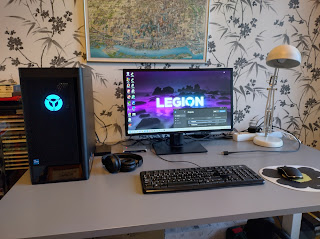Learning process
After releasing my latest game-like work at Mochimedia, I decided it is time to have a small break in game development and evaluate how things have been going in last couple of months.
My goal for the overall quality of my first flash game was not pretty high, but yes: I still was able to fall below that: game idea was not earth-shaking, graphics sucked, there were performance problems, and to top of it all the game had some nasty bugs or unexpected features. But hey: I was able to get something ready and distributed! I think it was the most important thing at that point, and it encouraged me to take next steps forward.
Following game projects were bit easier to implement, and I was able to add some complexity to the game mechanics and graphics. But more complexity means also more work and to a certain extent also higher probability to errors. Couple of my projects have ended up in deadlock situation where I was unable to figure out how to fix them.
I would say fledgling game developer should start with a simple game project with few features. Too complex mechanics and/or content will increase the likelihood of failure exponentially, and that should somehow be kept under control. It is always good idea to aim high, but too much ambition in wrong place may cause total disaster. And remember: complexity can be added gradually with increased experience.
And how game development experience can be increased? In my opinion only way to get experience is to create different games and learn from the mistakes that are made during the process. Unfortunately, there is no shortcut available (please let me know if I am wrong!). :)
But if, despite everything, a disaster occurs and your game project runs to the dead end, do not worry: you can always go few steps back, rethink the scope, and try again. And in extreme case you can even throw the project to trashcan and start a new one with greater experience.
That's called learning.
-Jussi
My goal for the overall quality of my first flash game was not pretty high, but yes: I still was able to fall below that: game idea was not earth-shaking, graphics sucked, there were performance problems, and to top of it all the game had some nasty bugs or unexpected features. But hey: I was able to get something ready and distributed! I think it was the most important thing at that point, and it encouraged me to take next steps forward.
Following game projects were bit easier to implement, and I was able to add some complexity to the game mechanics and graphics. But more complexity means also more work and to a certain extent also higher probability to errors. Couple of my projects have ended up in deadlock situation where I was unable to figure out how to fix them.
I would say fledgling game developer should start with a simple game project with few features. Too complex mechanics and/or content will increase the likelihood of failure exponentially, and that should somehow be kept under control. It is always good idea to aim high, but too much ambition in wrong place may cause total disaster. And remember: complexity can be added gradually with increased experience.
And how game development experience can be increased? In my opinion only way to get experience is to create different games and learn from the mistakes that are made during the process. Unfortunately, there is no shortcut available (please let me know if I am wrong!). :)
But if, despite everything, a disaster occurs and your game project runs to the dead end, do not worry: you can always go few steps back, rethink the scope, and try again. And in extreme case you can even throw the project to trashcan and start a new one with greater experience.
That's called learning.
-Jussi



Comments
Post a Comment